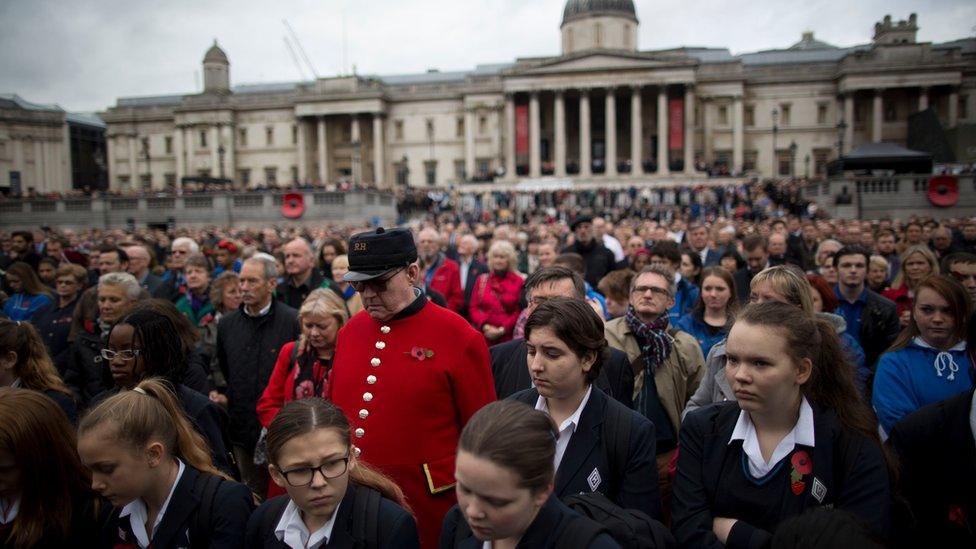Armistice Day silence takes place across Wales
- Published
Silences were held at remembrance services across Wales
Wales fell silent on Friday as the country remembered its war dead.
Armistice Day marked the end of World War One, at the 11th hour of the 11th day of the 11th month, back in 1918.
Two minutes of silence was observed by people around the nation, including at Swansea's cenotaph, Queen's Square in Wrexham and the field of remembrance in Cardiff.
Faces of 11,000 Royal Welch Fusiliers who died in World War One were displayed in Caernarfon, Gwynedd.
They appeared on a large screen at the town's Maes as part of a project to illustrate the extent of the losses suffered by just one regiment in the 1914-18 conflict.
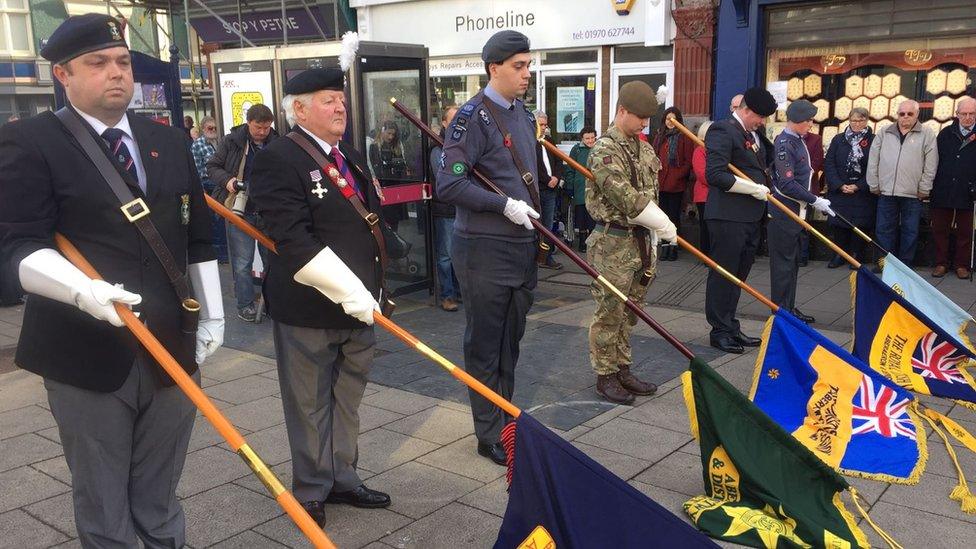
Veterans attended a remembrance event in Aberystwyth
First Minister Carwyn Jones visited the Poppies: Weeping Window installation at Caernarfon Castle.
He said: "The Royal Welch Fusiliers, who fought throughout the First World War, including the Battle of the Somme, have a special link with the castle.
"The thousands of people who have already visited the sculpture have had the opportunity to reflect and learn about how the momentous events of the First World War impacted on our communities in Wales and influenced the world we live in today."

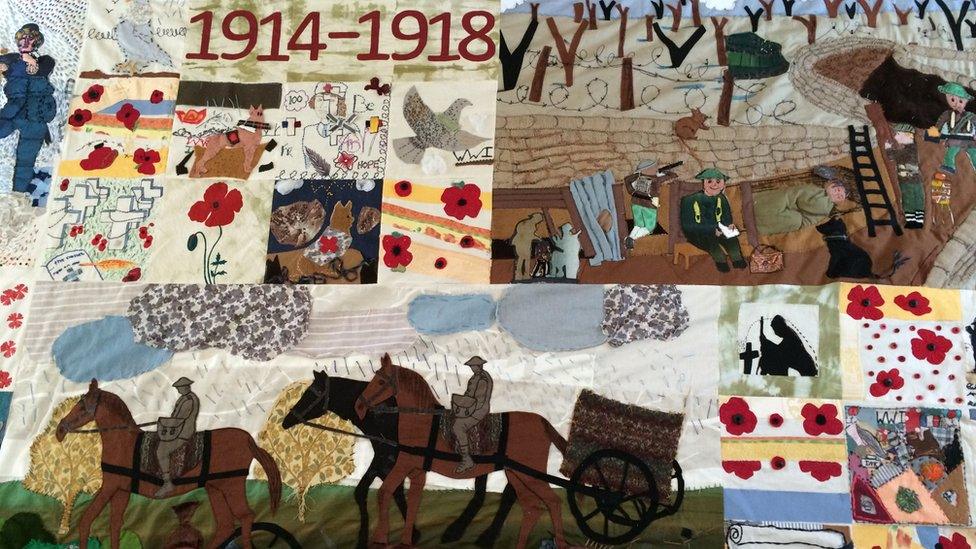
A commemorative WW1 quilt shows life in the trenches and the role of animals in the war
The funeral of D-Day paratrooper Donald Jones, 93, was held in Pontypool, Torfaen
A WW2 veteran was 'overcome' after being awarded, external the French military honour, the Légion d'honneur
Two commemorative quilts produced by more than 130 school children will be unveiled in Abergavenny, Monmouthshire
A rededication service took place at Ystradgynlais war memorial, following a £12,500 refurbishment by Powys War Memorials Project and county council
In Llantrisant, Rhondda Cynon Taff, a new war memorial was unveiled, followed by a concert

Meanwhile, the National Poet of Wales (Bardd Cenedlaethol Cymru), Ifor ap Glyn, has written a poem titled Terasau, which was inspired by a visit to war cemeteries in France.
It will be projected on to the Elizabeth Tower in London from dusk on Remembrance Sunday, alongside a background of falling poppies.
He said: "Terasau was inspired by a visit to the military cemeteries of the Somme, the humbling scale of loss and the near impossibility of 'knowing' the men who lie there.
"My family have lived in London since the 1880s, a small Welsh thread in the international tapestry of the city, and for me, the inclusion of this poem also acknowledges the rich contribution to London culture of the hundreds and thousands of us whose first language is not English.
"And as we commemorate the fallen once again, it is fitting that we remember that men of many cultures were numbered in their midst."
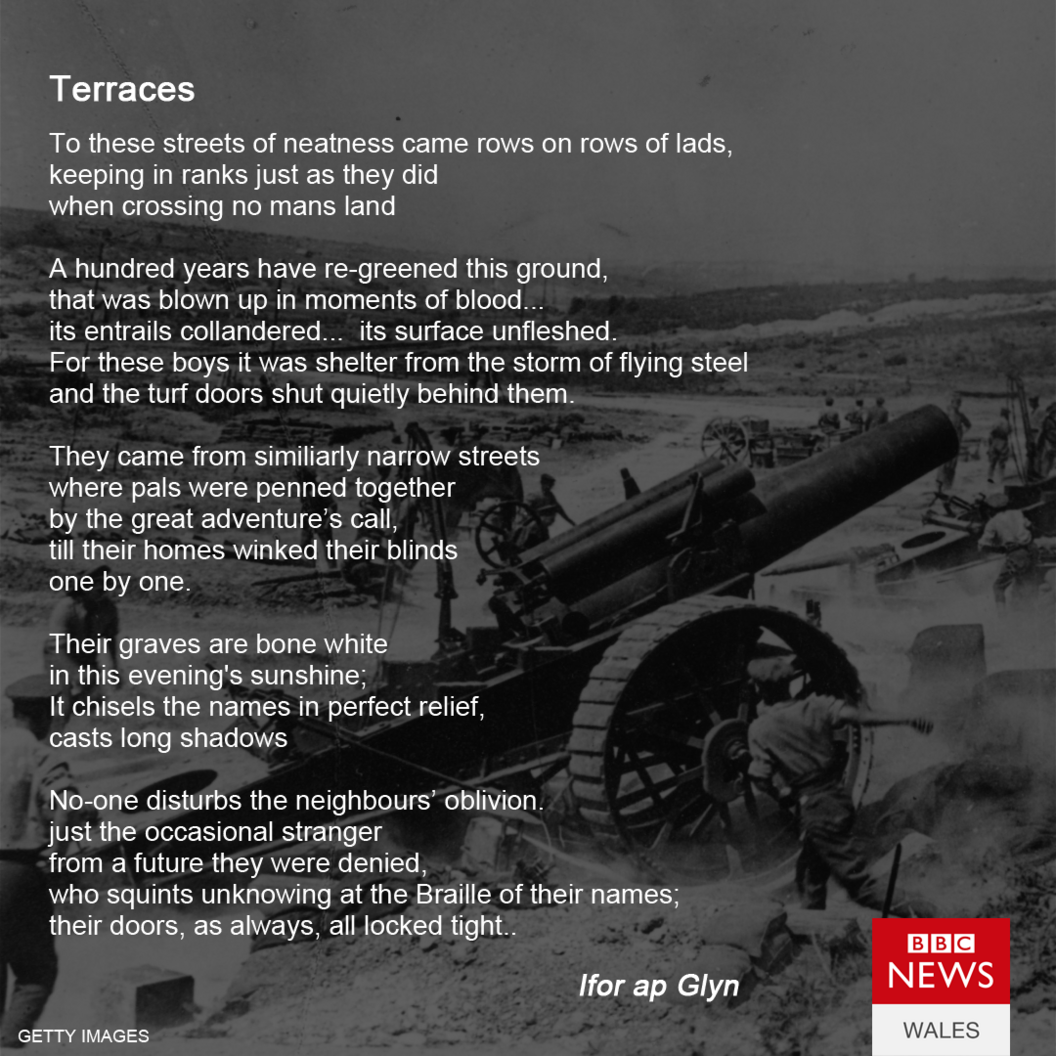
- Published11 November 2016
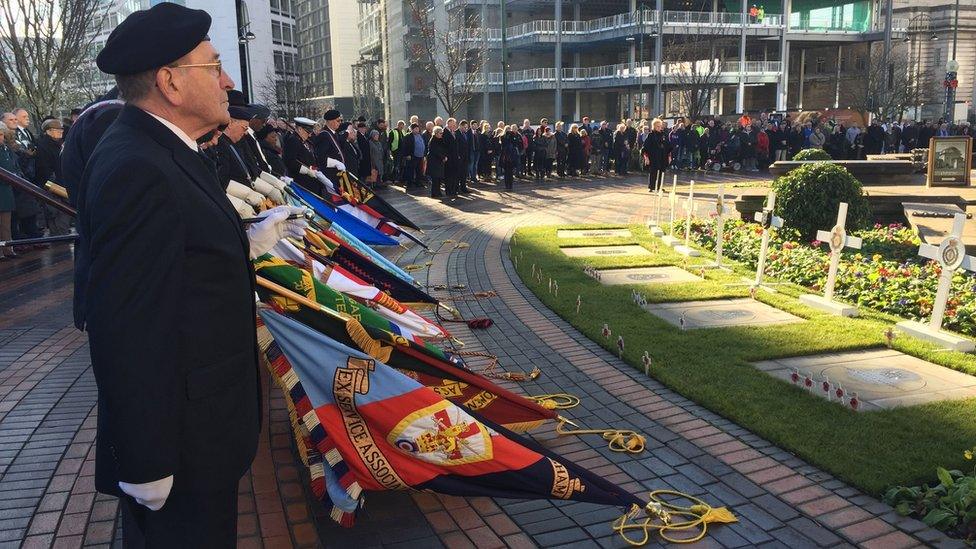
- Published9 November 2016
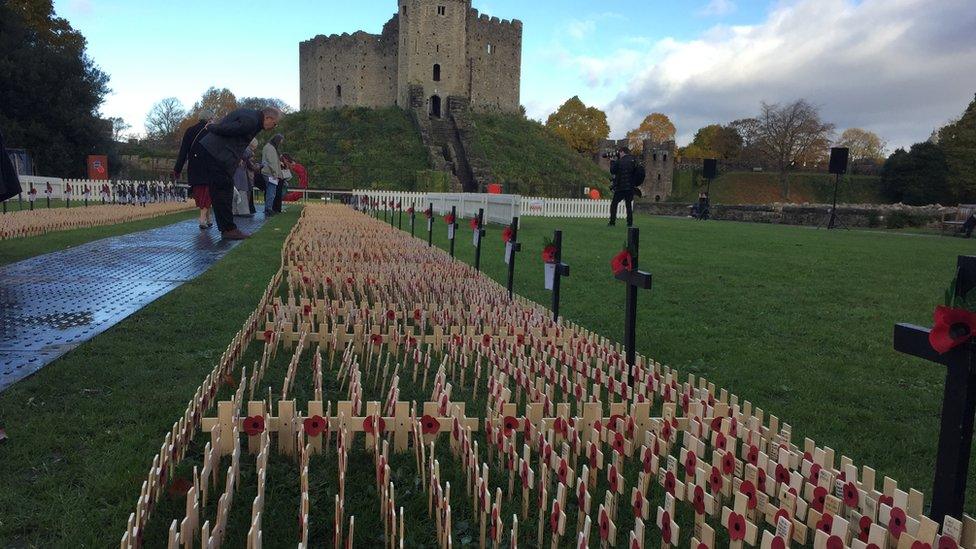
- Published27 October 2023
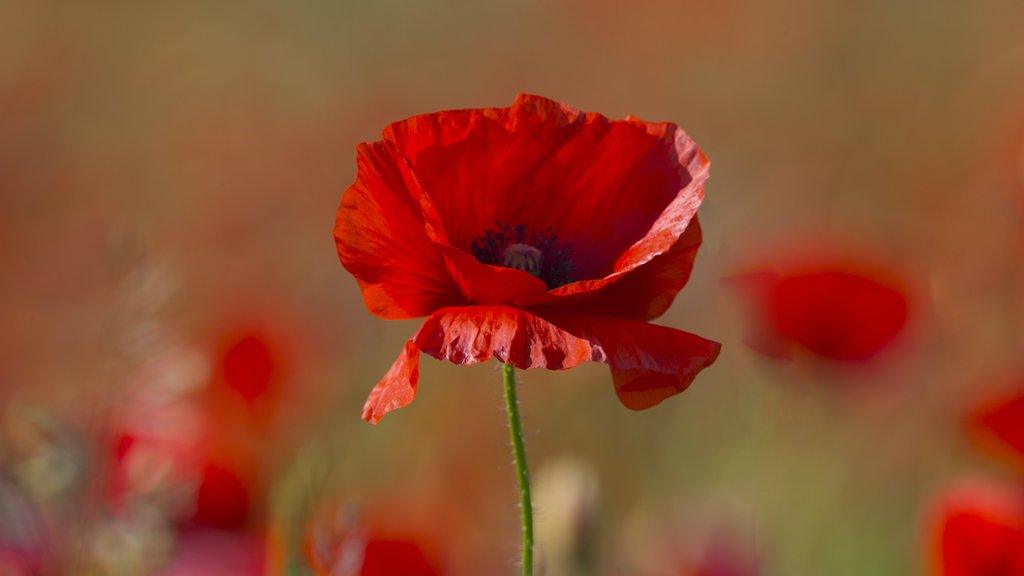
- Published9 November 2016
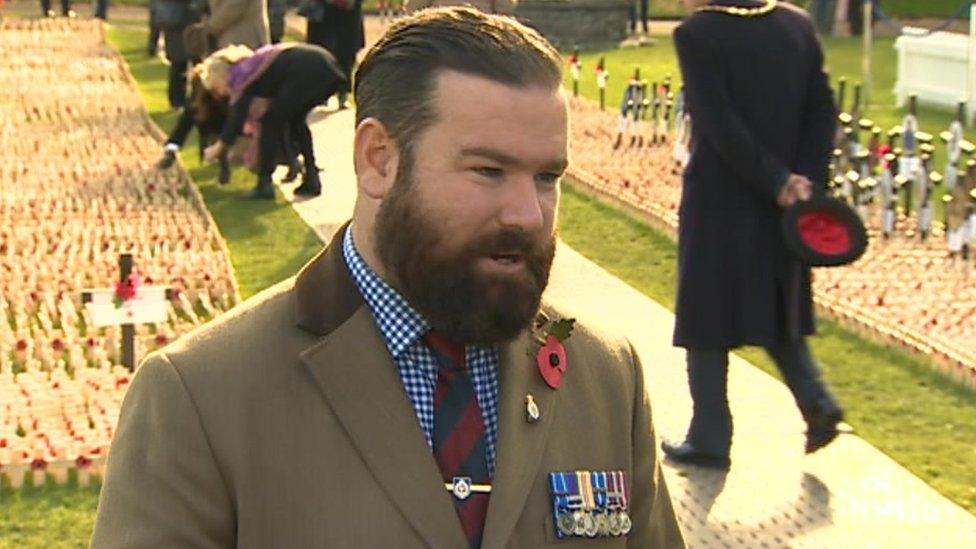
- Attribution
- Published9 November 2016

- Published11 November 2015
